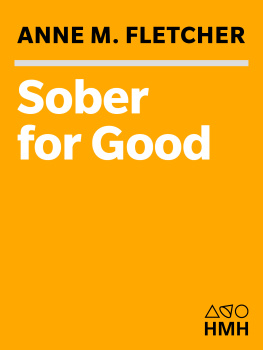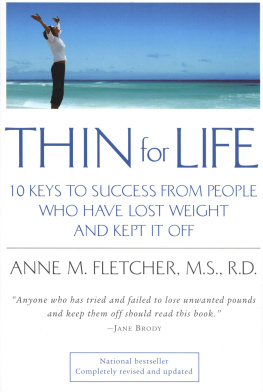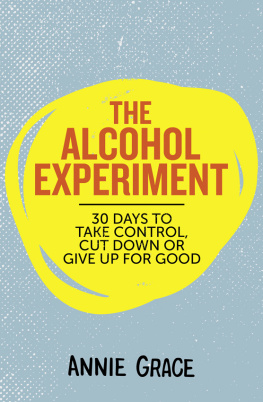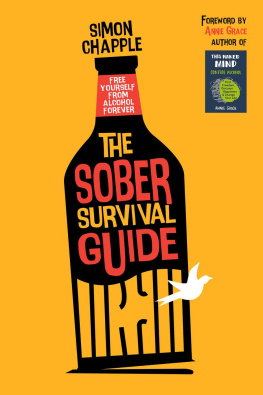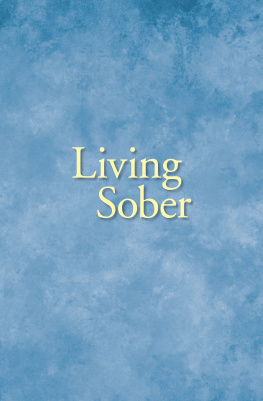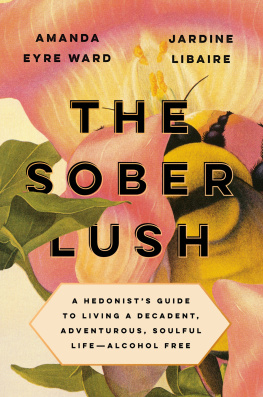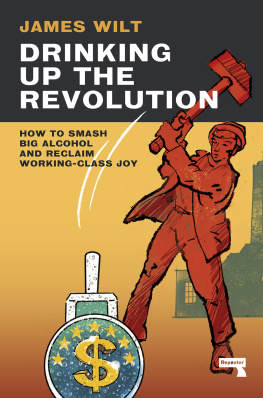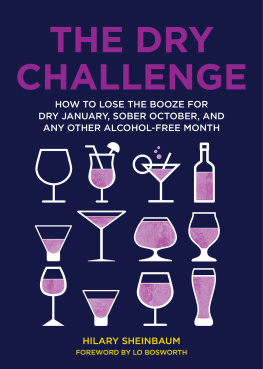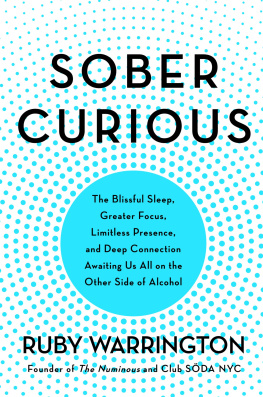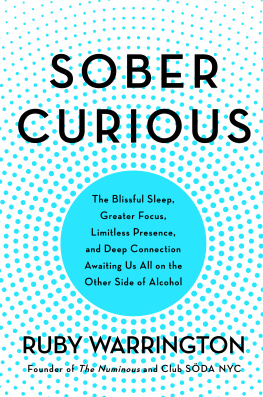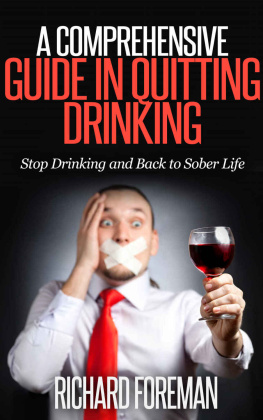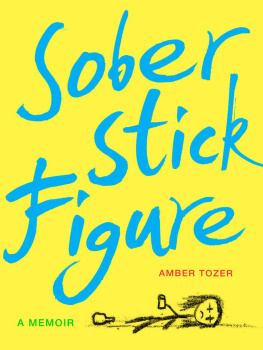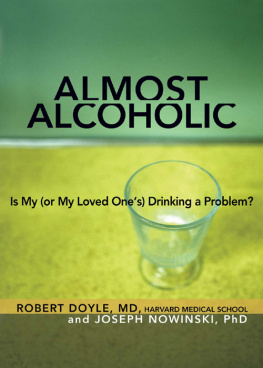First Houghton Mifflin paperback, 2002
Copyright 2001 by Anne M. Fletcher
Foreword copyright 2001 by Frederick Glaser, M.D.
All rights reserved
For information about permission to reproduce selections from this book, write to or to Permissions, Houghton Mifflin Harcourt Publishing Company, 3 Park Avenue, 19th Floor, New York, New York 10016.
www.hmhco.com
Library of Congress Cataloging-in-Publication Data
Fletcher, Anne M.
Sober for good : new solutions for drinking problems : advice
from those who have succeeded / Anne M. Fletcher.
p. cm.
Includes bibliographical references and index.
ISBN 0-395-91201-0
ISBN 0-618-21907-0 (pbk.)
1. AlcoholicsRehabilitation. 2. Alcoholism
RelapsePrevention. I. Title.
HV5276.F65 2001
362.292'8dc21 00-065032
eISBN 978-0-547-34728-8
v2.1217
THIS BOOK IS NOT INTENDED AS A SUBSTITUTE FOR PROFESSIONAL ASSISTANCE. THE AUTHOR AND PUBLISHER DISCLAIM ANY RESPONSIBILITY FOR ANY ADVERSE EFFECTS RESULTING DIRECTLY OR INDIRECTLY FROM INFORMATION CONTAINED IN THIS BOOK.
The designations of various organizations, systems, and/or products mentioned in this book are claimed by their owners as trademarks. These include:
SMART Recovery
Addictive Voice Recognition Technique
Campral
4-Point ProgramSM
ReVia
Rational Recovery
AVRT
DSM-IVTM
RRSM
Antabuse
The Twelve Steps of Alcoholics Anonymous () are reprinted with permission of Alcoholics Anonymous World Services, Inc. (AAWS). Permission to reprint the Twelve Steps does not mean that AAWS has reviewed or approved the contents of this publication, or that AAWS necessarily agrees with the views expressed herein. AA is a program of recovery from alcoholism onlyuse of the Twelve Steps in connection with programs and activities which are patterned after AA but which address other problems, or in any other non-AA context, does not imply otherwise.
For my sisters, Carol, Cindy, and Lois,
and for my friend Larry Lindner,
who is like a brother to me
Acknowledgments
My foremost appreciation goes to the hundreds of masters of alcohol problems who entrusted me with their stories. I only wish Sober for Good could have included quotations from all the people who responded to my callI cannot overstate my appreciation of their willingness to help others by sharing their personal accounts. The masters included in the book spent a great deal of time completing a lengthy questionnaire, and many of them gave additional time in phone interviews and e-mail sessions. In particular, the profiled masters who open each chapter devoted hours to telling me their stories and answering my numerous personal questions.
Next, I want to thank my familySteve, Wes, Ty, and Juliafor their patience and acceptance of the long work hours devoted to this book. No outside person ever knows how much families contribute toand put up with inthe making of a book.
I am indebted to many researchers who supported and reviewed my work, but first I want to go out of my way to express my immeasurable appreciation to the world-renowned relapse prevention expert and alcohol researcher Alan Marlatt, Ph.D., director of the Addictive Behaviors Research Center at the University of Washington. At the outset he encouraged me to write this book, and he then acted as my consultant, friend, and conscience throughout the entire writing process, from the proposal right through review of every chapter. Not only is he a brilliant researcher, dedicated to helping people view alcohol problems in new ways, but he has been kind and generous to me throughout the development of Sober for Good. His enthusiasm has sustained me through the highs and lows of writing this book.
Many other experts in the field encouraged me along the way, answered questions, offered direction, and reviewed sections of this book. I was fortunate to have help with my research from John Allen, Ph.D., associate director of treatment studies at the National Institute on Alcohol Abuse and Alcoholism (NIAAA). Mark Sobell, Ph.D., of Floridas Nova Southeastern University, was especially generous with his timehe was always willing to answer my questions and to review sections of the manuscript. Likewise, Marc Kern, Ph.D., director of Los Angeless Addiction Alternatives, was most responsive to many queries and offered regular, thoughtful commentary. Also particularly supportive was A. Thomas Horvath, Ph.D., 19992000 president of the American Psychological Associations Division on Addictions. I was honored to have periodic input from the renowned researcher William Miller, Ph.D., from the University of New Mexico. I also had the good fortune to have the historian Ernest Kurtz, Ph.D., author of Not-God, look over much of my material about Alcoholics Anonymous.
Thanks too to the following experts, who reviewed sections of Sober for Good according to their areas of expertise: Barbara McCrady, Ph.D., Rutgers University; Timothy OFarrell, Ph.D., Harvard Medical School; Tom McLellan, Ph.D., University of Pennsylvania; Jalie Tucker, Ph.D., M.P.H., Auburn University in Alabama; John Hughes, M.D., University of Vermont; Raymond Anton, M.D., Medical University of South Carolina; Robert Meyers, University of New Mexico; and Thomas Badger, Ph.D., University of Arkansas School of Medicine.
Also I want to credit the author and alcohol expert Stanton Peele, Ph.D., whose books inspired me and helped me personally; always, he has responded readily to my requests for information. Charles Bufe (owner of See Sharp Press) has also been helpful. Both of these men have tirelessly devoted themselves to disseminating groundbreaking information about the resolution of alcohol problems. Last, but not least, on the list of professional people to whom I owe thanks are Ann Bradley, NIAAA press officer; Reid Hester, Ph.D.; Deborah Dawson, Ph.D.; William Lands, Ph.D.; Esteban Mezey, M.D.; Anne Hatcher, Ed.D., R.D.; Frederick Rotgers, Psy.D.; and Rudolf Moos, Ph.D., all of whom answered questions or helped with my research along the way.
Special thanks goes to the recovery groups that helped me recruit the masters for Sober for Goodnamely, Women for Sobriety, SMART Recovery, and Secular Organizations for Sobriety. I appreciate their willingness, along with that of Alcoholics Anonymouss General Service Office, to answer my questions about their philosophies and programs. Rational Recovery also helped me locate masters for the book and answered questions. Credit also goes to individuals who helped me locate people for the book, including Jane Brody of the New York Times; Emily Fox Kales, Ph.D.; George Deering, M.D.; Wendy Richardson; Stanley Fields, of the Recovery Road Radio Show; Betty Yarmon, with Partyline; and Michael McCarthy, M.D.
I will be forever grateful for the responsiveness and support of Christine Tomasino, whose relationship with me goes far beyond that of being my literary agent. She spent countless hours helping me develop the proposal for Sober for Good, reading the manuscript, offering professional advice, and being my friend for the nearly four years it took to write this book. I am indebted also to my sage editor, Rux Martin, whose wisdom in shaping a book is immeasurable. I am continually impressed by her ability to extract all that makes a book worth reading. Thanks too to the editor Barry Estabrook, who saw the potential in my ideas and offered helpful advice. He has been a strong supporter of my books and was instrumental in bringing Sober for Good to Houghton Mifflin.
Behind the scenes were special people who helped with the research, correspondence, and/or legwork involved in Sober for Good: Inez Thomas, Mary Stadick, Gail Zyla, Leigh Pomeroy, Kristin Woizeschke, and Britt Anderson. I thank them all for their invaluable help. My gratitude goes too to the following people from my past: George Komaridis, Ph.D.; Elaine Pitkin, Ph.D.; William Vogel, Ph.D.; Robert Wiedeman, and Chris Bettinelli.
Next page
